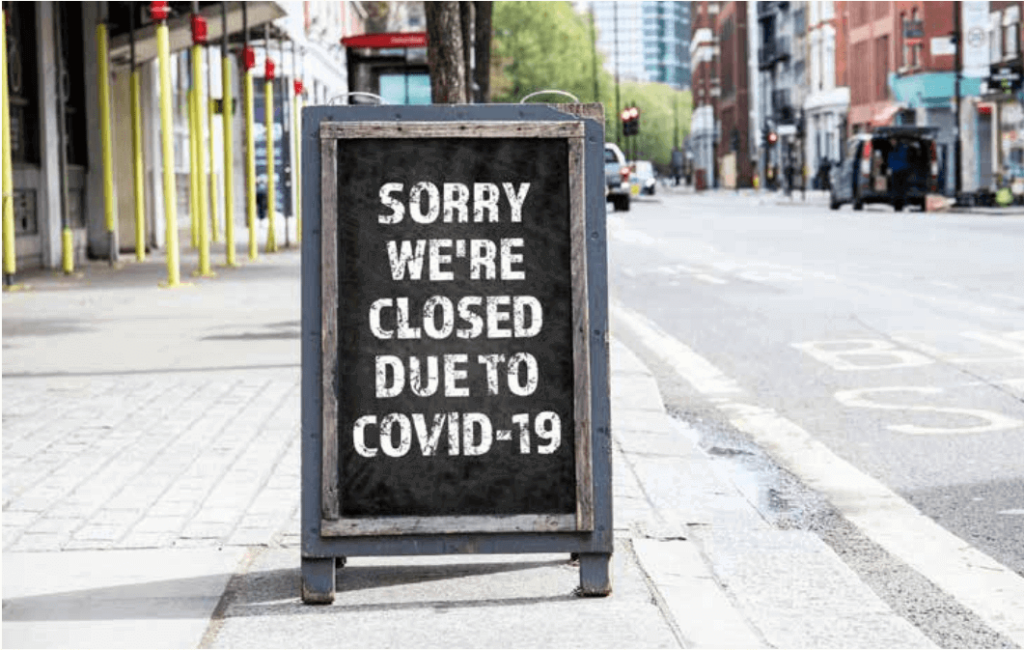During a recent Coronavirus update meeting, President Donald Trump said that he thinks that many insurance companies should be paying business income losses due to the coronavirus pandemic.

He acknowledged that many policies exclude events such as epidemics, but “in a lot of cases, I don’t see it. I would like to see the insurance companies pay if they need to pay.”
Under property insurance policies, including standard BOP policies, business income insurance is triggered by the same perils that trigger direct property loss. Typically, these are perils such as fire, windstorm, and even human-caused perils like vandalism and terrorism. In most cases, though, property and business income policies do not include coverage for viruses or pandemics and, in many cases, specifically exclude these perils.
SARS Virus Exclusion in Property and Business Income Policies
In July 2006, The Insurance Services Office (ISO) created an exclusion used in the majority of U.S. insurance policies that has been approved by regulators that explicitly excludes the SARS virus — a type of coronavirus — for coverage under direct or indirect (that is business income) loss. (They also created an endorsement that includes this coverage, though no state insurance commissioners have yet approved it; more on this later.)
After Mr. Trump’s news conference statement, insurance company spokespeople were quick to explain that if property insurance policies were intended to cover instances such as pandemics, they would collect a premium for that contingency, which would undoubtedly be costly.
Several Republican senators agreed and responded to Trump with a letter, objecting and saying the attempt to “rewrite” insurance contracts would undermine the insurance system.
“Because (business interruption) insurance typically does not cover pandemics absent an explicit rider, insureds under these policies were never charged premiums for that risk and insurers did not reserve for or hold capital against the potential future loss,” the letter states.
State Legislatures Propose Making Insurers Pay Business Income Losses
However, many states are now proposing legislation to require insurance companies to cover business income losses from the pandemic regardless of exclusions or the existence of specific policy wording to the contrary. Some of these proposals are based on various theories of coverage:
- Denial of access to business premises due to decrees of civil authorities (this is often a covered peril though there is the virus exclusion to deal with)
- Loss of use of premises due to coronavirus (assuming the ISO virus exclusion does not apply)
- Disruption of supply and distribution chains due to coronavirus (supply chain losses must be from a covered peril, although again the ISO exclusion could invalidate this approach).
Probably the most novel approach to finding coverage under a typical property and business income policy is that taken by New Jersey. It, along with several other states, including New York, Massachusetts and Ohio, is proposing laws to mandate insurance coverage for business income loss.
The proposed New Jersey legislation states that every insurance policy covering loss or damage to property, which includes business interruption, in force from March 9 will be understood to include coverage for business interruption due to a global virus transmission or pandemic. The coverage provided would be subject to the limits under the policy and would reimburse the insured for business interruption losses during the state of emergency.
However, the mandate also offers relief to insurance companies. They are to be reimbursed for their payments. When insurers pay coronavirus business interruption claims they can apply to the New Jersey Commissioner of Banking and Insurance “for relief and reimbursement from a collection of funds made available for this purpose.”
The proposed legislation stipulates that losses due to global virus transmission and pandemic are generally excluded from the list of covered perils under the existing standard business interruption insurance policy. But it goes on to say that the insurance industry has developed a rider to provide policyholders the option of purchasing coverage, but no states have yet approved the form to date.
So what New Jersey is doing is making that coverage available retroactively and assuming that every business in New Jersey would have purchased it if it had been available!
“This bill is intended to hold harmless a certain portion of the business sector, which had the foresight to purchase business interruption insurance, for losses sustained as a result of the current health emergency, but for which no such coverage is currently offered,” according to the proposed legislation.
We don’t know how these efforts will play out in the long run. But we know the president and even the insurance companies (note how many auto insurers are refunding a portion of paid premiums because people are driving less) are probably making a sincere effort to do what they can to get the country back on its feet as soon as possible.
